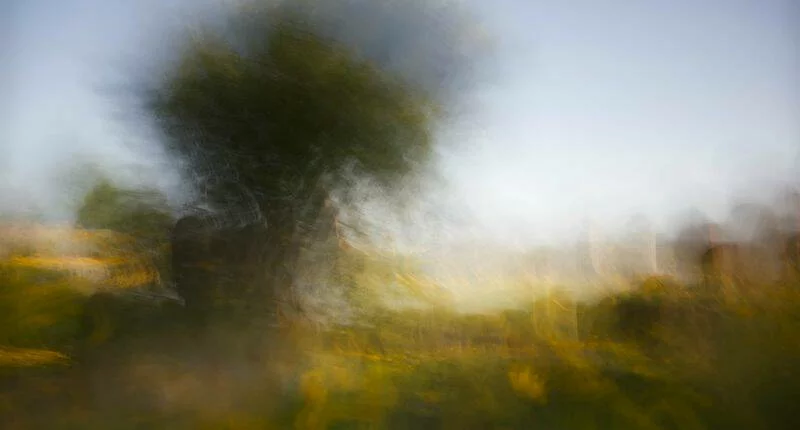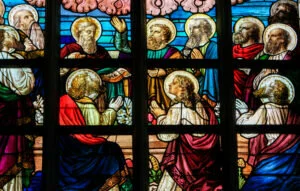I do not understand what I do. For what I want to do I do not do, but what I hate I do.
—Paul to the Romans (7:15)
“What is this negligence, this standing still?
On your way to the mountain, running, and peel
away the dead skin that keeps you from seeing God.”
—Cato (Purgatorio II)
Sometimes my Vineyard small group still sings that old praise chorus, “Refiner’s Fire.” The song emphasizes a major theme in evangelical life, purity, which is a vexed and fraught concept for me, but which of course dominates the Purgatorio.
The song prays, “Purify my heart,” which sounds right: God does the work of purification, not us, after all. But I always found this form of purity kind of static. The chorus says, “My heart’s one desire / is to be holy.” What would happen then, once I am holy? Is the work done? Do I retire from the life of the spirit?
We do often see heaven as a place of rest and peace, but I think we should not equate rest with cessation of work or stasis. The work just won’t be toilsome but the pleasant and productive use of our minds and bodies. “Rest” would mean freedom from the anxiety that we won’t have enough or be safe.
Nor should we confuse purification with salvation or justification, as though we must be thoroughly clean before we can be saved. Christ’s work prepares us to be presented to him as holy and clean, but that seems to be the result of a process that happens after salvation itself (as we saw in a recent RCS). If nothing else Purgatory presents us with a vision of the afterlife as still in some way a process or journey, as a place where there is more work to be done.
My Heart’s Several Desires
Of course, this only raises my anticipation of how Dante will represent Heaven. What will rest look like, there? But in the meant time, when Cato calls the souls away from Casella’s singing and toward the mountain, I think of the desire part of the song, which picks up on Paul’s confession in Romans 7, i.e., that his desires seem out of whack with his actions. The souls, no doubt, do want to see God, but the music captivates them; they desire to hear it enough to pause on their way.
“Desire” in the song is aspirational. None of us has such purity of heart that we only desire holiness, though hopefully we all desire it to some degree. We also desire warmth, security, affection, and coffee. This is Paul’s point—we are divided from ourselves:
For I have the desire to do what is good, but I cannot carry it out. For I do not do the good I want to do, but the evil I do not want to do—this I keep on doing. Now if I do what I do not want to do, it is no longer I who do it, but it is sin living in me that does it.
This passage can mean both that our hearts contain multiple, conflicting desires, and that even our good desires can have unintended consequences because of sin. Both point to our need for salvation, but there’s a tradition from Paul to Augustine to Dante and all the way to James Smith, wherein the task of the spiritual life is to have our desires rightly ordered. That means becoming the kind of people who desire the right things, in the right priority, to the right degree, for the right reasons, and at the right time.
The Sacramental Then and Now
Cato’s elevation of Beatrice over Marcia told us that romantic love must be changed. His chiding the charmed souls here shows us that the love of beauty must likewise be schooled. The point does not seem to be that the poem or song was not beautiful or in some way worth the attention the souls gave it, but, as Cato says, their lingering at the base of the mountain keeps them from seeing God the sooner—which should be their prime desire.
I happen to believe that art, the form of the beautiful, can reveal something of the divine to us in the present. When it does, it serves a sacramental function, uniting in itself transcendent and immanent, divine and created. Because it is in the nature of God to create as well as to make himself present to his creation through the means of that creation (as in one of Jonathan Edwards’s favorite maxims), the artwork need not “disappear” or “dissolve” into pure spirit in order to show us God. In fact, if it did dissolve it could not show us God, because we do not see God as pure spirits but as embodied beings.
Dante himself has a similar aesthetic; he believes that art can present divine realities to us on what he calls the “anagogic” level of interpretation. Therefore we should be careful not to mistake what happens here for a repudiation of art in the afterlife. In life, it was good and pleasant for Dante to enjoy Casella’s voice and the way it expressed the goodness of God’s handiwork. In death, though, beauty that keeps one from the immediate presence of God must be derivative or inferior. Perhaps we will see a new kind of artwork in Paradise that directly responds to being in God’s presence, but until then Cato insists there is no excuse for delay.
This, again, is the purpose of Purgatory, to prepare and purify us, to train our desires.








Comments
Be the first one to make a comment!